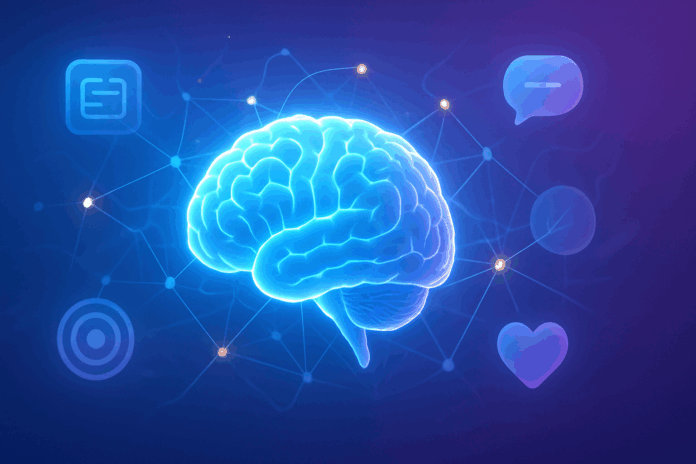In the fast-paced rhythm of modern life, mental clarity, focus, memory, and emotional regulation are often taken for granted until they begin to falter. This intricate web of mental abilities is what professionals refer to as cognitive function. But what is cognitive function exactly? And why does it matter so deeply in the realm of health and wellness? At the intersection of psychology, neuroscience, and public health, cognitive function serves as a cornerstone for everyday well-being and long-term mental resilience. Understanding its full meaning and implications can empower individuals to support their mental faculties more intentionally throughout life.
You may also like: How to Prevent Dementia and Alzheimer’s Disease Naturally: Expert-Backed Strategies to Reduce Your Risk Through Lifestyle and Diet
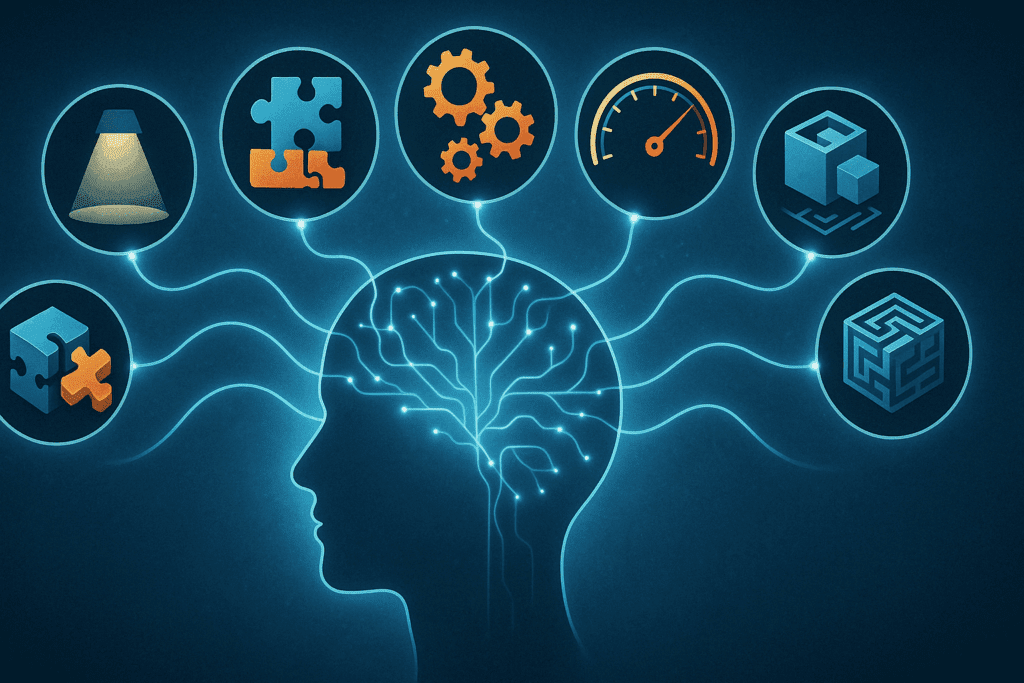
Understanding the Meaning of Cognitive Health
To grasp the full picture of what is cognitive health, it is essential to recognize that cognitive function is not a singular skill but a composite of various interconnected processes. These include attention, memory, executive function, processing speed, language, and visuospatial skills. Collectively, these capabilities enable individuals to absorb, interpret, and respond to the world around them in real-time. The question, “What does cognitive mean?” extends far beyond textbook definitions—it encapsulates the dynamic interaction between the brain and behavior.
The cognitive meaning in English commonly refers to the mental processes involved in acquiring knowledge and understanding. But this broad definition barely scratches the surface of its complexity. In medical literature, the cognition medical definition emphasizes how the brain receives, stores, retrieves, and uses information. Thus, cognitive health reflects how well these processes function, impacting not only our academic or professional performance but also our ability to manage emotions, form relationships, and make reasoned decisions.
Exploring the Cognitive Definition in Real-World Context
While the cognitive def often focuses on theoretical constructs, cognitive function manifests in everyday scenarios that are strikingly familiar. When you remember where you placed your keys, solve a complex problem at work, or even navigate a busy street, you are engaging various aspects of cognition. What does the word cognitive mean in such instances? It reflects your brain’s capacity to manage incoming information, assess context, and direct appropriate responses—all within milliseconds.
From childhood development to aging populations, cognitive meaning evolves with life stages. In early life, it plays a vital role in language acquisition and learning. As we age, maintaining strong cognitive function becomes increasingly important in preventing decline, enhancing quality of life, and preserving independence. Therefore, asking what is meant by cognitive is more than academic—it is a vital inquiry into how we maintain our sense of self.
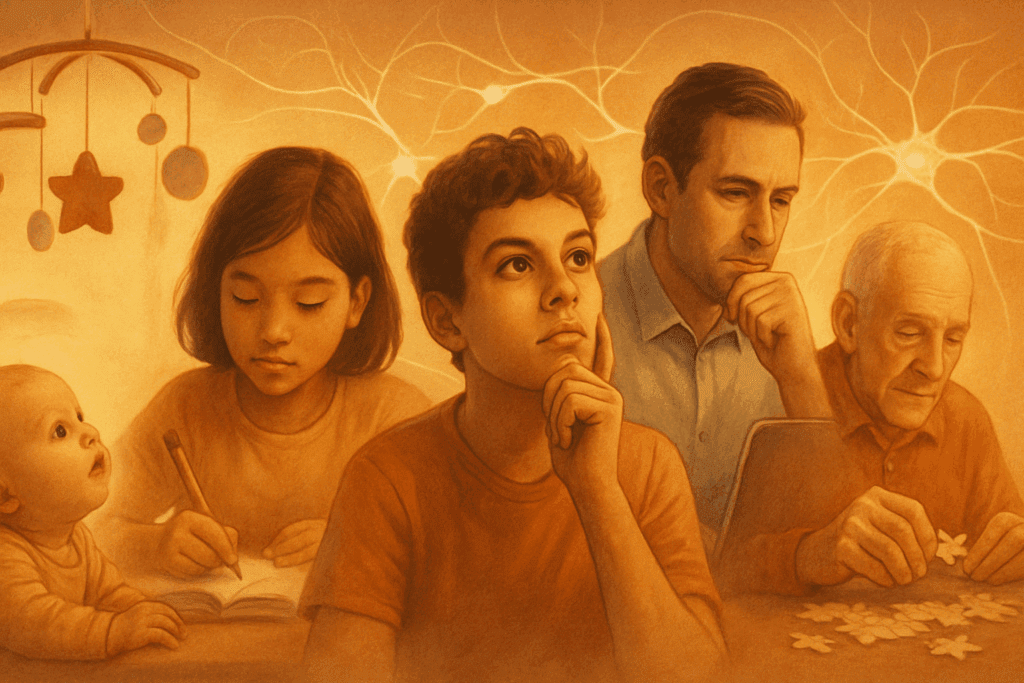
What Is Cognition and Cognitive Development?
Understanding what is cognition and cognitive development requires a nuanced appreciation of how mental abilities grow and change over time. Cognitive development encompasses the transformation of thinking processes from infancy through adulthood. Influenced by both genetics and environmental inputs, this development forms the framework upon which intellectual and emotional growth is built.
Infants begin with rudimentary recognition and gradually acquire skills like attention, memory, and language. In early childhood, the brain undergoes rapid synaptic growth, allowing for complex reasoning and problem-solving. Adolescence introduces the refinement of executive function—those higher-order skills responsible for planning, decision-making, and impulse control. Throughout adulthood, these skills continue to be shaped by experience, lifestyle, and education. Cognitive development is neither linear nor uniform; instead, it is a dynamic, lifelong journey. The meaning of cognitive growth lies in its capacity to expand human potential and adaptability in a constantly changing environment.
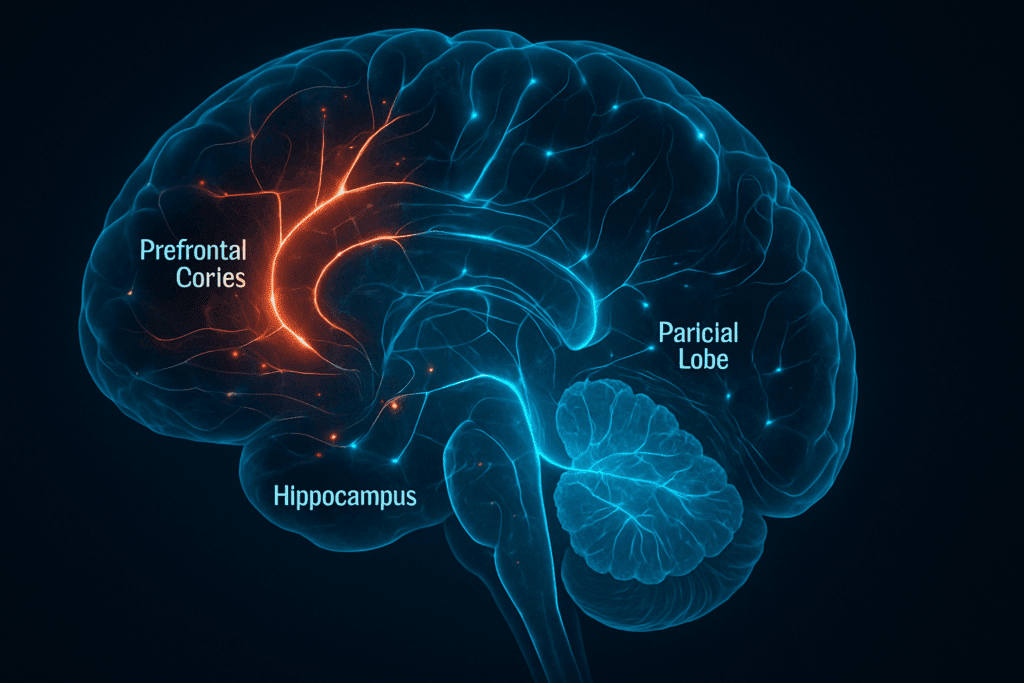
The Neuroscience Behind Cognitive Processes
To truly comprehend what is cognitive function, one must delve into the underlying neurological mechanisms. The brain’s structure and function are intricately organized to support various domains of cognition. The prefrontal cortex, for instance, is critical for executive functions such as judgment, problem-solving, and emotional regulation. The hippocampus is vital for memory consolidation, while the parietal lobes handle spatial reasoning and numerical understanding.
Neurotransmitters such as dopamine, serotonin, acetylcholine, and glutamate play essential roles in modulating cognitive performance. Any disruption in the balance of these chemicals—due to stress, sleep deprivation, medication, or neurological disease—can lead to noticeable cognitive impairments. Therefore, the medical and scientific definitions of cognition consistently emphasize both structural and functional brain health as key to maintaining optimal performance.
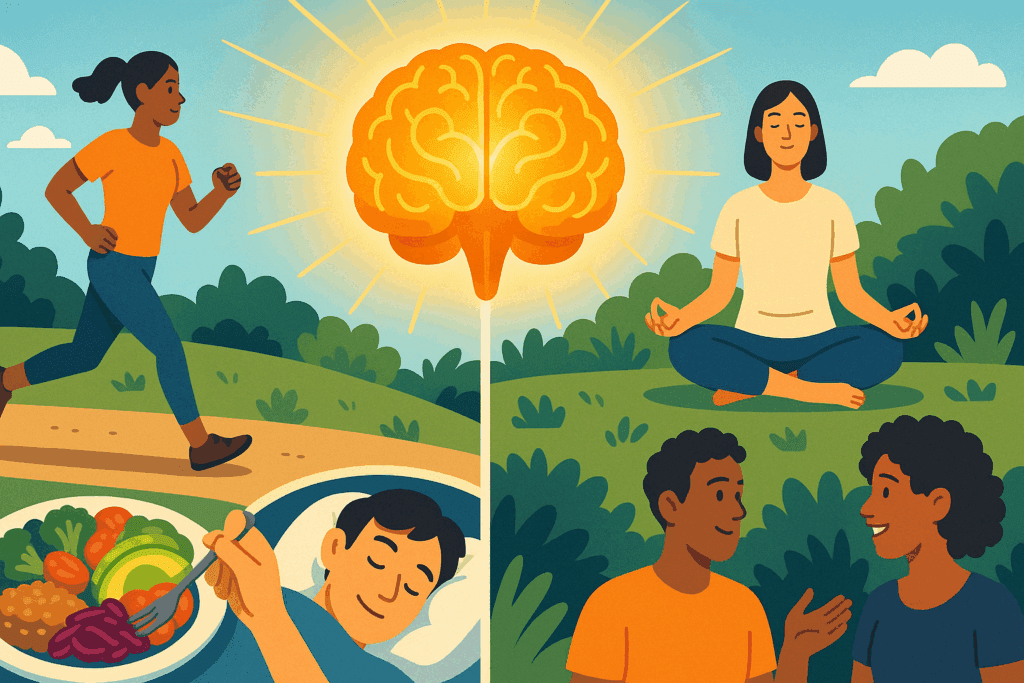
Lifestyle Factors That Influence Cognitive Health
Cognitive health is not solely determined by biology. Lifestyle choices significantly influence how well we think, learn, and remember. Regular physical activity has been shown to enhance neurogenesis (the formation of new brain cells), particularly in the hippocampus. Aerobic exercise, in particular, boosts blood flow to the brain, supporting its metabolic and structural needs.
Nutrition is another cornerstone of cognitive preservation. Diets rich in omega-3 fatty acids, antioxidants, vitamins B6, B12, and folate contribute to brain function and protect against oxidative stress. Sleep, often undervalued, plays a critical role in memory consolidation and cognitive integration. Chronic sleep deprivation, on the other hand, is a known risk factor for cognitive decline. The impact of stress, too, cannot be overstated; prolonged exposure to cortisol can disrupt synaptic plasticity and shrink critical areas of the brain, such as the hippocampus.
Social engagement and continuous learning are also protective factors. Individuals who maintain strong social networks and engage in mentally stimulating activities tend to exhibit slower cognitive aging. These real-world applications of cognitive science reinforce that what is meant by cognitive function extends well beyond the realm of IQ tests or academic performance. It is about how we live, interact, and adapt.
Cognitive Impairment and Its Implications
When cognitive function begins to decline, the consequences ripple across all aspects of life. Cognitive impairment can range from mild memory lapses to severe disruptions in judgment, language, and attention. Mild Cognitive Impairment (MCI) may precede conditions like Alzheimer’s disease but does not always progress to dementia. The early detection of cognitive decline allows for interventions that may slow its progression or mitigate its impact.
Cognitive impairment often begins subtly. A person may struggle to find words, forget appointments, or have trouble multitasking. These changes can affect professional performance, personal relationships, and self-esteem. In more advanced stages, individuals may become disoriented, misinterpret visual information, or display inappropriate social behaviors. Understanding the cognitive meaning in these contexts becomes critical for caregivers, healthcare providers, and affected individuals alike.
Importantly, recognizing the difference between normal aging and pathological decline is essential. While some cognitive slowing is expected with age, significant impairment should prompt a medical evaluation. In this regard, the cognition medical definition helps delineate between healthy cognitive changes and those requiring intervention. Proper diagnosis and support can vastly improve outcomes and quality of life.
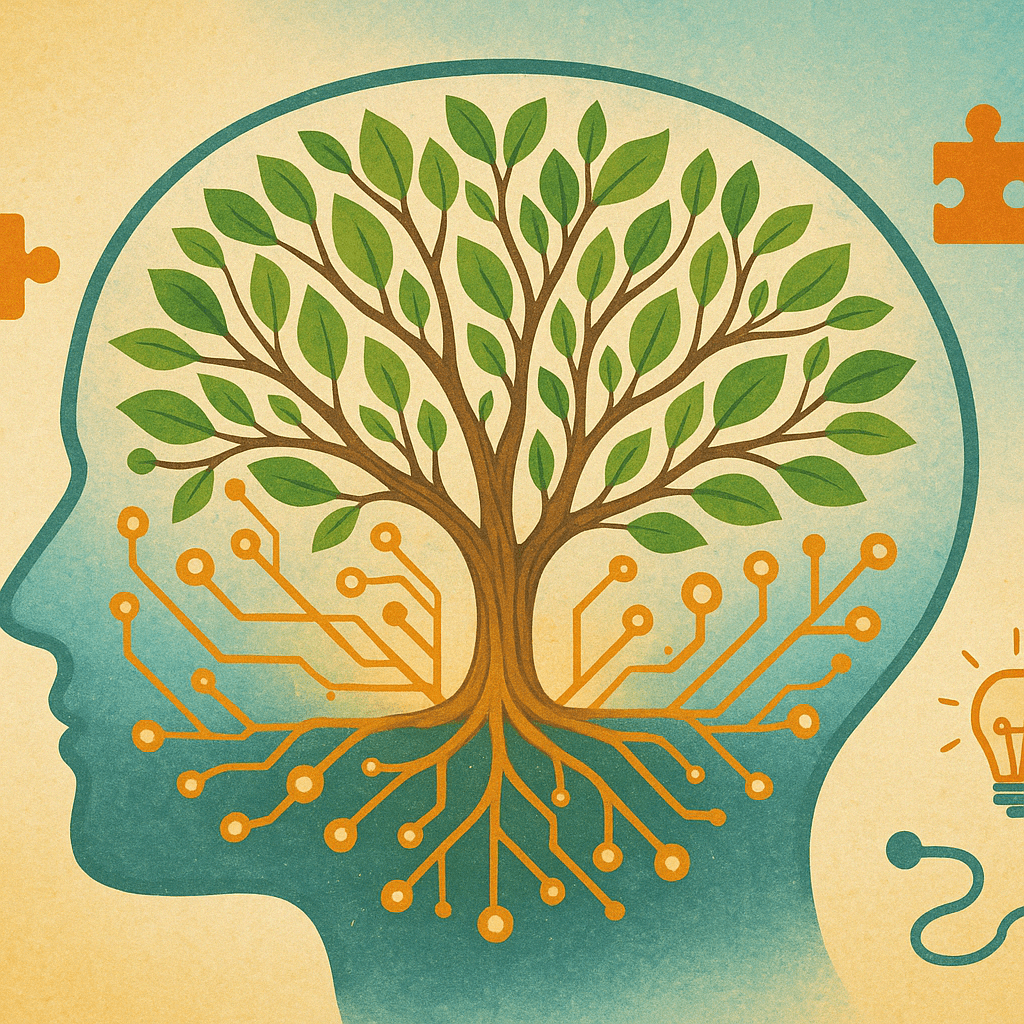
Cognitive Rehabilitation and Neuroplasticity
One of the most promising developments in cognitive science is the concept of neuroplasticity—the brain’s ability to reorganize itself by forming new neural connections. This capacity underlies many strategies in cognitive rehabilitation, a field dedicated to restoring or improving cognitive skills after injury, illness, or age-related decline.
Rehabilitation techniques may include memory training, attention exercises, problem-solving tasks, and the use of external aids such as calendars or digital reminders. Emerging therapies also include virtual reality environments, computer-based cognitive training, and mindfulness practices. These approaches are designed not just to compensate for deficits but to rebuild underlying neural pathways.
This understanding aligns closely with the evolving definition of what is cognitive function. It reinforces that cognition is not a static trait but a flexible, malleable set of skills that can be nurtured and enhanced. Whether recovering from a brain injury or seeking to optimize daily functioning, individuals can benefit from these evidence-based interventions.
The Role of Cognitive Function in Emotional and Social Health
Cognitive function does not operate in isolation. It is deeply intertwined with emotional regulation and social behavior. Executive function, for instance, helps individuals manage emotions, resist impulsive actions, and navigate interpersonal conflict. Deficits in these areas are often observed in conditions such as ADHD, traumatic brain injury, and mood disorders.
Furthermore, cognitive empathy—the ability to understand another person’s perspective—relies on higher-order cognitive processing. Strong cognitive skills support better communication, deeper relationships, and more effective conflict resolution. When asking what is cognitive health, it is critical to include these social-emotional dimensions. Mental well-being is not merely the absence of illness but the presence of skills that facilitate meaningful connections and self-awareness.
The Intersection of Cognitive Function and Mental Health Disorders
Mental health disorders frequently involve cognitive dysfunction. Depression, for example, can impair attention, working memory, and decision-making. Anxiety may hijack cognitive resources through persistent worry, making it difficult to concentrate or retain information. Schizophrenia, bipolar disorder, and PTSD all exhibit specific cognitive profiles that can interfere with daily life.
These disorders highlight how the cognitive def expands beyond abstract mental tasks to impact practical functioning. In clinical psychology and psychiatry, understanding the cognitive components of mental illness has informed more targeted interventions. Cognitive Behavioral Therapy (CBT), for instance, focuses on identifying and restructuring maladaptive thought patterns, drawing on the principle that thoughts influence emotions and behavior.
The growing emphasis on cognitive assessment in mental health care demonstrates a shift toward more holistic models of treatment. Addressing cognitive symptoms alongside emotional and behavioral ones offers a more comprehensive path to recovery.
Protecting Cognitive Health Across the Lifespan
From infancy to advanced age, supporting cognitive function is a lifelong endeavor. In childhood, proper nutrition, responsive caregiving, and stimulating environments lay the foundation for robust cognitive development. School-aged children benefit from a mix of structured learning and unstructured play, both of which foster problem-solving and creative thinking.
Adolescents require guidance in developing executive function skills as they face increasing academic and social demands. In adulthood, cognitive health can be supported through continued education, professional challenges, social interactions, and lifestyle balance. Older adults can maintain cognitive vitality by staying physically active, mentally engaged, and socially connected.
Public health initiatives are beginning to reflect this life-course perspective. Programs promoting brain health literacy, early screening for cognitive changes, and community-based cognitive fitness interventions represent a growing recognition of what is meant by cognitive well-being. This approach fosters a culture in which cognitive health is prioritized alongside physical and emotional health.
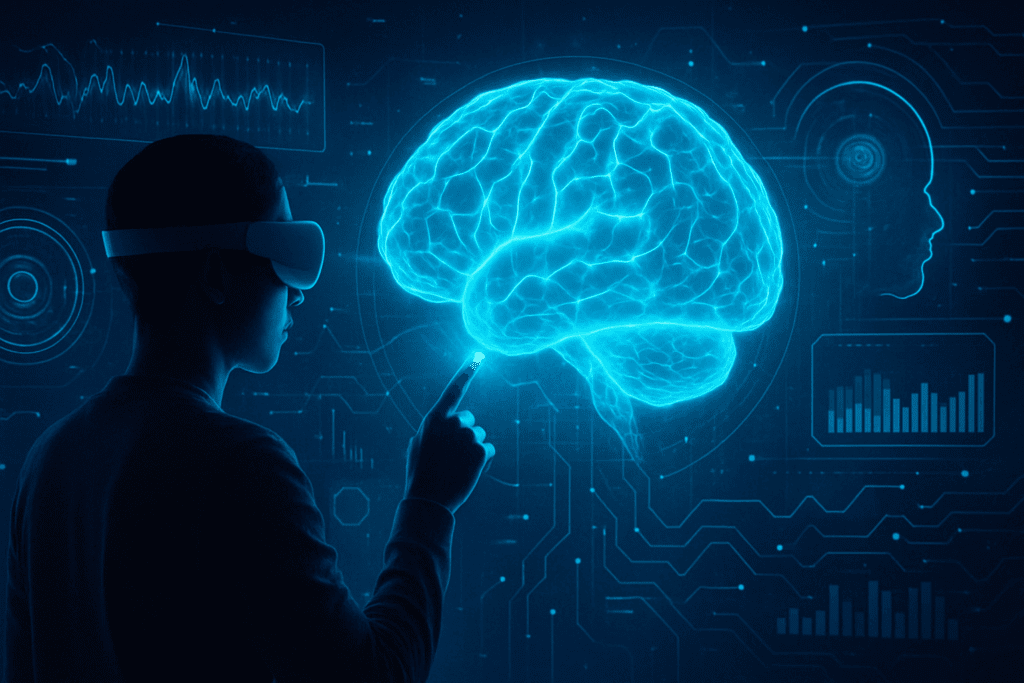
Technology’s Role in Enhancing Cognitive Function
Technological innovation offers new frontiers in understanding and supporting cognition. Cognitive training apps, wearable devices, and AI-based assessments are increasingly used to monitor and enhance cognitive abilities. These tools can provide personalized feedback, track progress, and adapt exercises to target specific areas of weakness.
However, it is essential to approach these tools with scientific rigor. While many apps claim to boost brain power, only a subset have demonstrated efficacy through peer-reviewed research. Nonetheless, technology holds promise in expanding access to cognitive support, particularly in underserved or remote populations.
In clinical settings, neuroimaging technologies such as fMRI and PET scans provide detailed insights into brain activity patterns, enhancing diagnostic precision. These advancements help clinicians tailor interventions based on individual cognitive profiles. As our understanding deepens, the integration of technology into cognitive care is likely to become more nuanced and effective.
Frequently Asked Questions: Understanding Cognitive Function and Its Broader Impact on Health and Wellness
1. How does cognitive function influence decision-making in high-stress environments?
In high-stress environments, cognitive function plays a critical role in shaping both the quality and speed of decision-making. Stress can narrow attentional focus, limiting cognitive flexibility and hindering access to long-term memory, which may cause individuals to rely on reactive rather than reflective choices. What is cognitive under these conditions becomes particularly relevant, as the brain prioritizes immediate threat detection over complex reasoning. Understanding the cognition medical definition reveals that areas such as the prefrontal cortex—responsible for executive decision-making—can become less effective under chronic stress. Supporting cognitive health through stress management techniques like mindfulness and breathing exercises can help individuals maintain higher-order thinking, even when pressure is high.
2. Can enhancing cognitive function improve creativity and innovation?
Absolutely. Creativity is often misunderstood as purely emotional or artistic, but it is deeply rooted in cognitive processes like divergent thinking, pattern recognition, and mental flexibility. The cognitive meaning in English includes the brain’s ability to combine previously unconnected ideas, a process vital for innovation across industries. When asking what does cognitive mean in creative workspaces, it’s about strengthening the brain’s ability to connect abstract concepts in novel ways. Techniques like cognitive priming, exposure to varied experiences, and brainwave entrainment exercises can elevate these functions. Cognitive training focused on working memory and mental agility has shown promise in supporting creative output by expanding the mind’s capacity to juggle ideas and perspectives.
3. What role does sleep architecture play in long-term cognitive development?
Sleep quality—especially the presence of deep (slow-wave) and REM sleep—is integral to what is cognition and cognitive development over time. During slow-wave sleep, the brain consolidates declarative memories, while REM sleep supports emotional memory processing and problem-solving capabilities. Disruptions in sleep architecture can impair synaptic plasticity and the integration of newly acquired information. This connection between rest and cognition is often overlooked when people inquire about cognitive def in developmental settings. Enhancing sleep hygiene, tracking circadian rhythms, and even using cognitive behavioral therapy for insomnia (CBT-I) can help maintain sleep structures that promote lasting cognitive strength.
4. Are there environmental factors that uniquely impact cognitive function in children?
Yes, and these go beyond basic educational access. Air quality, noise pollution, exposure to nature, and parental stress all influence early cognitive trajectories. Children exposed to chronic urban noise or air pollutants often experience delays in attention and working memory, revealing the broader scope of what is meant by cognitive health. Moreover, children growing up in unstable or high-stress households may show slower progression in executive functions, as noted in developmental applications of the cognition medical definition. Interventions that include green schoolyards, community mentoring, and consistent routines have shown effectiveness in promoting cognitive resilience in these contexts.
5. How does digital multitasking affect cognitive efficiency?
While multitasking may feel productive, it significantly reduces efficiency in tasks requiring cognitive depth. The concept of what does the word cognitive mean takes on new relevance in our tech-saturated culture, where the brain is often forced to toggle between apps, messages, and work-related tasks. This constant switching creates cognitive load, draining the brain’s attentional resources and limiting encoding into long-term memory. Neuroimaging studies show that digital multitasking can weaken the anterior cingulate cortex’s ability to filter irrelevant information. Building digital boundaries and incorporating monotasking routines can restore the clarity associated with peak cognitive performance.
6. Is cognitive decline inevitable with aging?
While some degree of slowing is normal, decline is not inevitable. Understanding what is cognitive health in aging populations helps us distinguish between natural changes and those caused by lifestyle or pathology. Older adults who engage in aerobic exercise, continuous learning, and social activities tend to preserve cognitive skills well into their later years. The cognitive meaning in English must be expanded to include adaptability—the capacity to modify mental strategies and use compensatory tools. Importantly, neuroplasticity remains active throughout the lifespan, meaning interventions such as learning new skills, practicing mindfulness, or even learning a second language can strengthen the aging brain.
7. Can diet and gut health influence cognitive function?
Yes, there is growing evidence connecting nutrition and gut microbiota to brain function. What is cognition and cognitive development is increasingly understood as a brain-gut axis process, in which gut bacteria influence neurotransmitter production, inflammation levels, and even mood. Diets rich in prebiotics, probiotics, omega-3 fatty acids, and polyphenols support a healthy gut environment that in turn fosters clearer thinking and better emotional regulation. The cognitive def now extends to include metabolic and microbial variables that were once considered unrelated to mental health. Clinical trials are even exploring how modifying the microbiome may alleviate cognitive symptoms in conditions such as depression or ADHD.
8. How do traumatic experiences reshape cognitive function over time?
Trauma, especially in early life, can lead to lasting changes in cognitive function. Exposure to trauma alters the limbic system’s sensitivity and can stunt the development of executive functions, memory consolidation, and emotional regulation. When we consider what is meant by cognitive adaptation post-trauma, it involves both the impact of neural rewiring and the body’s stress regulation mechanisms. Emerging therapies such as Eye Movement Desensitization and Reprocessing (EMDR) and trauma-informed CBT work to retrain maladaptive cognitive patterns. Advances in neuroimaging have shown that, with time and support, brain regions affected by trauma can recover function and structural integrity.
9. In what ways does bilingualism affect cognitive abilities?
Bilingualism offers significant cognitive advantages, especially in executive control, attentional shifting, and delay of age-related decline. Asking what does cognitive mean for bilingual individuals reveals a heightened ability to filter distractions, prioritize information, and switch tasks—skills rooted in the prefrontal cortex. Studies show that bilingual individuals often perform better on tasks involving cognitive flexibility and working memory. Additionally, bilingualism may increase cognitive reserve, potentially delaying the onset of neurodegenerative symptoms. These benefits support a more expansive interpretation of the cognitive def that includes cultural and linguistic diversity as assets for brain health.
10. What are emerging technologies doing to assess and enhance cognitive function?
Emerging technologies are transforming the way we understand and support cognitive function. From EEG-based wearable headbands to AI-powered neuropsychological assessments, innovation is reshaping the cognitive meaning in English from static ability to dynamic adaptability. Personalized cognitive training platforms use algorithms to tailor mental exercises based on a user’s performance trends, a practical answer to what is cognitive enhancement in a digital age. Furthermore, virtual reality environments now simulate complex decision-making scenarios for therapeutic purposes, helping to retrain the brain after injury or decline. These tools mark a shift from generic assessments to precision-based cognitive care, expanding the scope of the cognition medical definition in real-world applications.
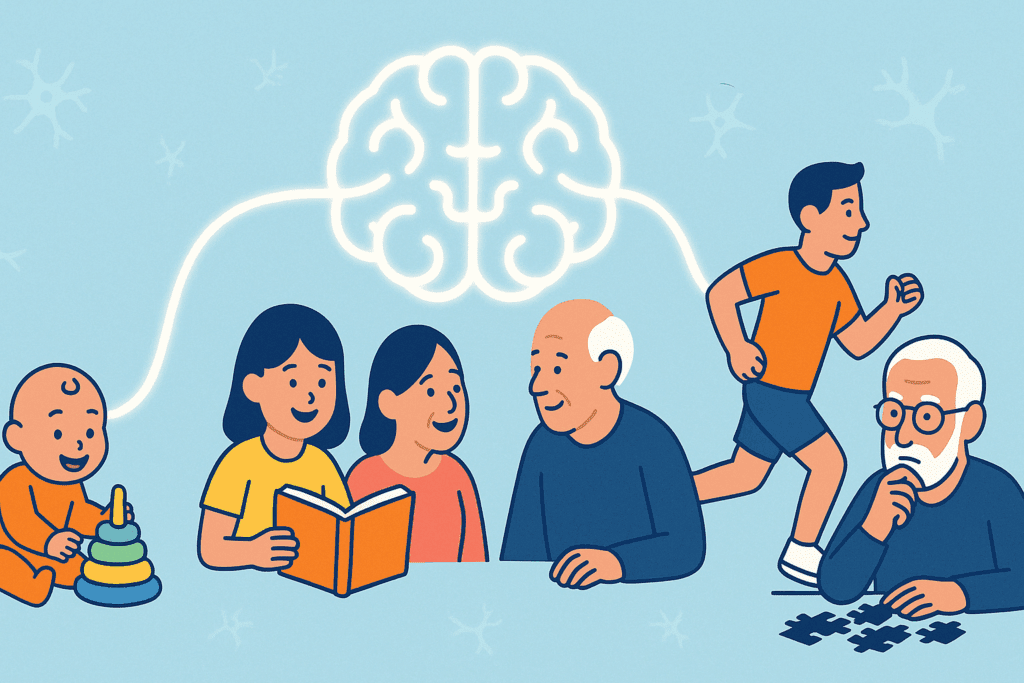
Conclusion: Why Understanding Cognitive Function Matters for Mental Health and Well-Being
As the complexity of the human brain continues to unfold, so too does our understanding of what is cognitive function and why it is essential for thriving in a demanding world. At its core, cognition encompasses the abilities that shape how we perceive, think, feel, and act. From the moment we wake to the time we sleep, these faculties guide our interactions, decisions, and personal growth.
By examining cognitive meaning in English, exploring what does cognitive mean in everyday life, and unpacking the cognition medical definition, we can begin to appreciate how central cognitive health is to mental wellness. Whether asking what is meant by cognitive or investigating the trajectory of what is cognition and cognitive development, the answers point to a deeply interconnected system that influences every domain of life.
Supporting cognitive function is not merely a clinical concern—it is a personal and societal imperative. By prioritizing nutrition, physical activity, sleep, stress management, and lifelong learning, individuals can foster mental agility and emotional balance. Meanwhile, healthcare systems and communities can build structures that promote cognitive literacy and early intervention.
In a world increasingly shaped by information and complexity, the clarity and adaptability of our minds are among our most valuable assets. Understanding what does the word cognitive mean is not an exercise in semantics—it is a vital step toward holistic health. By embracing this knowledge, we can all move toward a future where cognitive well-being is celebrated as a foundation of human potential and resilience.
Was this article helpful? Don’t let it stop with you. Share it right now with someone who needs to see it—whether it’s a friend, a colleague, or your whole network. And if staying ahead on this topic matters to you, subscribe to this publication for the most up-to-date information. You’ll get the latest insights delivered straight to you—no searching, no missing out.
Further Reading:
Cognitive Health and Older Adults
The Relationship Between Cognitive Health and Mental Health
Disclaimer
The information contained in this article is provided for general informational purposes only and is not intended to serve as medical, legal, or professional advice. While Health11News strives to present accurate, up-to-date, and reliable content, no warranty or guarantee, expressed or implied, is made regarding the completeness, accuracy, or adequacy of the information provided. Readers are strongly advised to seek the guidance of a qualified healthcare provider or other relevant professionals before acting on any information contained in this article. Health11News, its authors, editors, and contributors expressly disclaim any liability for any damages, losses, or consequences arising directly or indirectly from the use, interpretation, or reliance on any information presented herein. The views and opinions expressed in this article are those of the author(s) and do not necessarily reflect the official policies or positions of Health11News.

